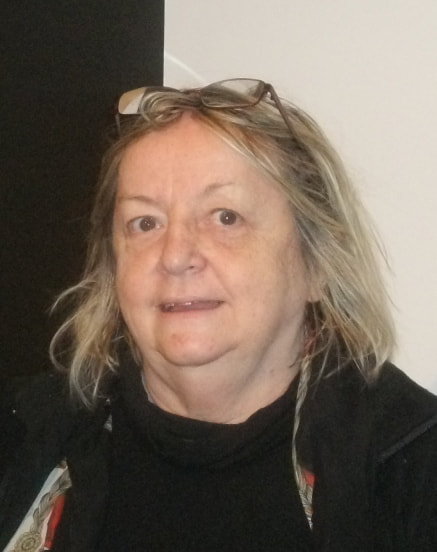Somehow the pilot landed safely. I passed through customs, emerging to see Hugh, the charming director of studies at the English language school I was to teach at, waiting for me. He’d arranged accommodation in an hostal in the historic area of Madrid for a few weeks until I found a place to stay. The conserje, carrying a large bunch of keys, greeted us, opening up beautiful ornate wrought iron courtyard gates and ascensor/lift doors leading to the room I would share with two other new teachers until I could find accommodation. Relieved, I thanked Hugh, promising to find my way to ‘La Casa Inglesa’, in La Plaza de Salamanca, the next day for orientation.
‘Nuevo en la ciudad’, my first weeks were spent with other teachers being oriented to my new job and seeking accommodation. I learnt take the Metro to La Casa Inglesa, leaving after the afternoon siesta to teach classes of young professionals keen to learn English to advance their careers. After classes I found inexpensive restaurants with menus del dia and gradually became a regular at one or two.
Rents were exhorbitant and it seemed I would never be able to find a place of my own. I became unwell. Hugh became so concerned about my cough he offered me the little servant’s room which opened up into the internal light well in his apartment -- on the proviso that I didn’t have guests to stay. He’d had his fill of backpacking friends of friends lying all over his apartment!
After moving to Hugh’s piso in Calle Padilla, I began to establish an expat life of the English Language teacher in Madrid. Prior to that, living in the tourist precinct, eating out and not having to shop, make beds or do housework, was only the entrée. I made my tiny room a retreat, adding food supplies to the shared fridge. I attended Spanish classes and bought a radio for my room to improve my Spanish. I enjoyed waking up listening to the maids from the other pisos chatting to each other across the internal light well each morning.
I began to know my neighbourhood. Only two blocks away from La Casa Inglesa, there were at least 15 tapas bars, each specialising in a ‘tapas’ speciality, between home and work. The customary afternoon ‘chateo’, or walk from one tapas bar to another with friends, became part of my life. The barmen at nearby ‘Bar Stop’, where English teachers from all over Madrid congregated on a Friday evening, began to know me by name. Even old ‘Don Fernando’, whose tiny ‘keyhole’ bar sold wonderful coffee, became quite friendly. He was rumoured to have been a Franquista sympathiser, possibly even a retired general. It was 1976, only a year after General Franco’s death and a referendum on the establishment of democracy was being planned.
The streets of Madrid and routes out of Madrid to beautiful towns such as Toledo and Segovia became increasingly familiar as did the main metro routes and bus routes. I became a frequent customer at colourful, vibrant markets, learning new names for the huge varieties of colourfully displayed verduras, legumes, carne and pescado. I still ate out a lot, as Madrilenos often do, often returning to the little restaurant in the old part of town where a warm welcome and the menu del dia awaited, served by Jesus, the tiny toreadorer waiter who always enjoyed practising his English with me.
I began to know Madrid more intimately, found the best paella, suckling pig, garlic mushrooms and music, and was always happy to be a tour guide when friends came to town. The head waiter of the classy flamenco restaurant ‘Corral de Moreira’ (Paddock of the Moors), Justino, became a friend and always welcomed me and my coterie of visitors to Madrid. I’d had a letter of introduction to Justino from Tony Lopez, a cleaner at Elwood High School, my last school before travelling overseas. I learned to take visiting friends to the later and more intimate second tableau flamenco. The dancers and singers would often interact and flirt with the audience, which of course my friends loved!
Often ‘new in town’ as a teacher, I came to understand the value of focusing on meeting ‘Food’, ‘Shelter’ and ‘Transport’ needs (have you heard about Maslow’s ‘Basic Needs’?) first. Finding and setting up a nest, however small; getting to know the neighbourhood, foods, cafes and or bars, markets and supermarkets, traffic routes to favourite places; and services; developing a network of people who provide regular support such as doctors; mechanics; gardeners and hairdressers, all help to develop the comfort zone key to successfully negotiating being ‘nueva del ciudad’.
It’s the same in Benalla - it is having David as my maintenance man and gardener; another David as my mechanic; Jack as my hairdresser; Michael for the lawns. It’s the people who smile at me when I go to Hides Bakery and other cafes in Benalla. I’d have to say that even after eighteen years in Benalla I still haven’t quite sorted out my own doctor, but I’m at least on the books and know some of the doctors at the Carrier Street Clinic. I’ve achieved Maslow’s basic needs of shelter and security and although I do get lonely, U3A plays an important role in meeting my belonging, self esteem and even self actualization needs. And one thing I know, if ever new in town again I would certainly seek out U3A, which I’ve discovered also has a presence in Spain!
Bev Lee
February 2017


